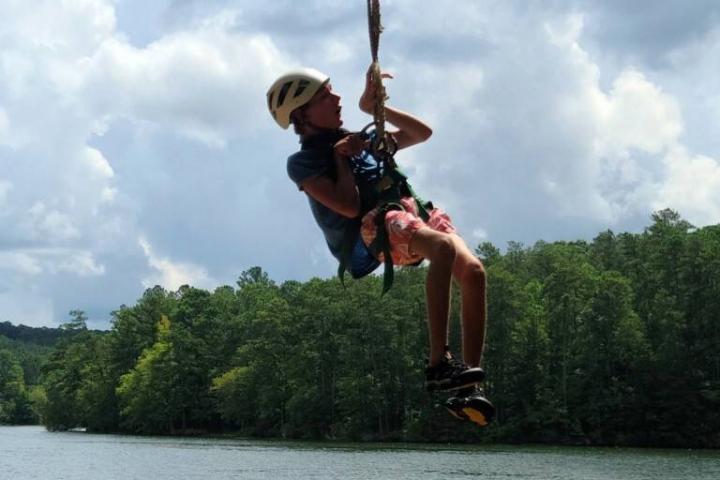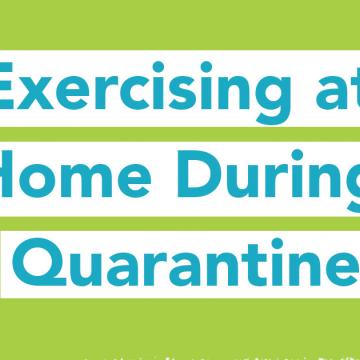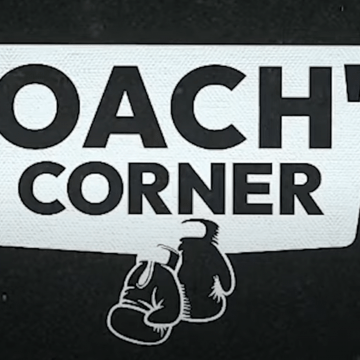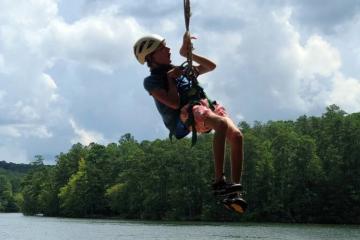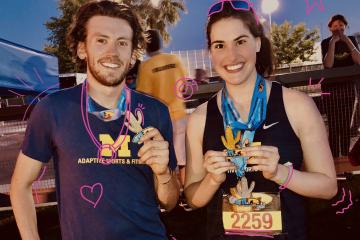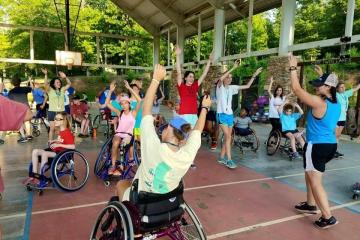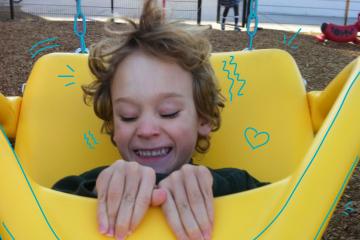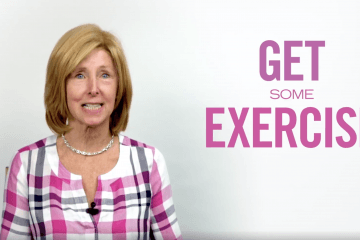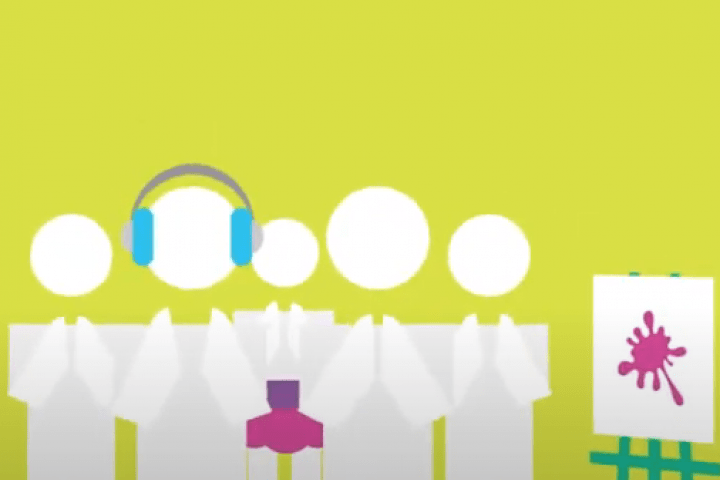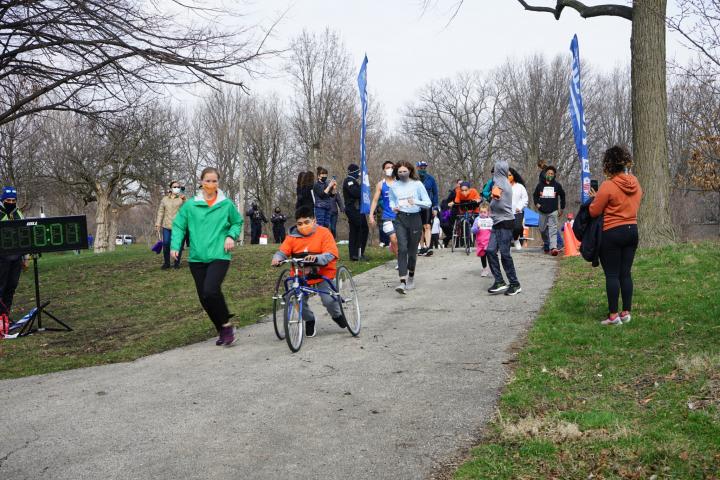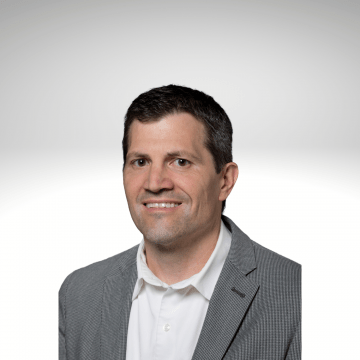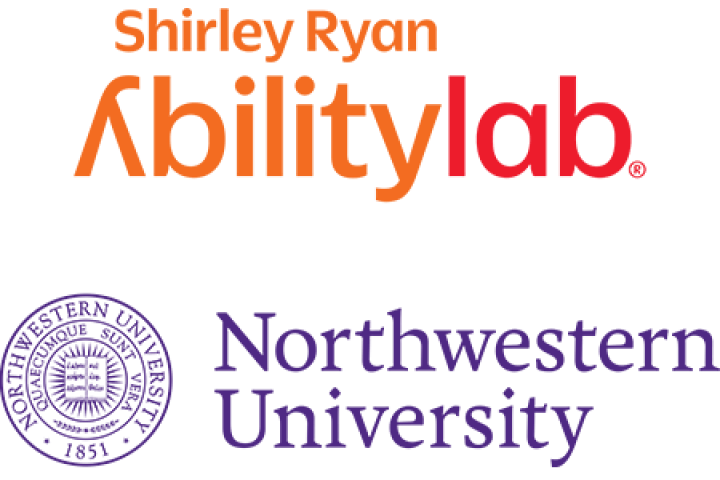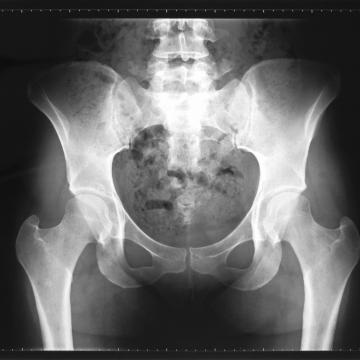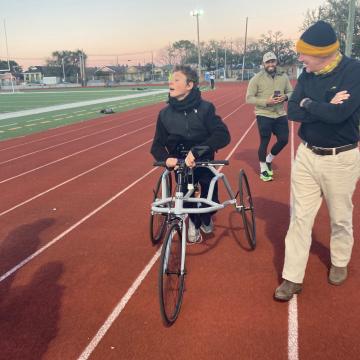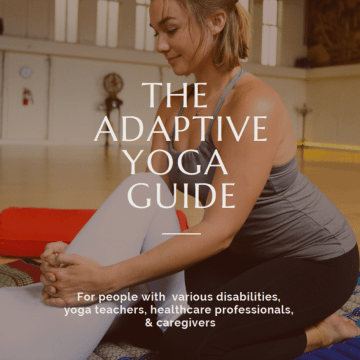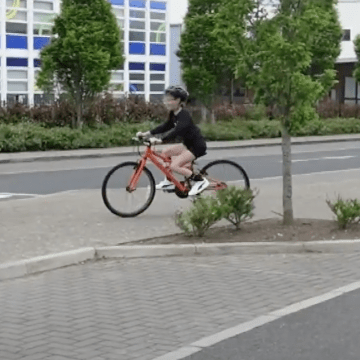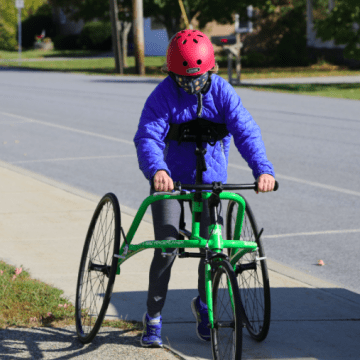Exercise and physical activity are important for the health and well-being of everyone, yet this area is overlooked for people with cerebral palsy.
Too often, people with cerebral palsy from the early years through adulthood are forced to the sidelines and/or not encouraged when it comes to school sports and recess, community exercise and fitness programming, represented on sports teams or welcomed in a variety of recreational and exercise settings. The Cerebral Palsy Foundation is working to change the status quo by raising awareness, collaborating with stakeholders, schools, institutions, policy makers and other experts to level the playing field.
Participating in a favorite sport or fitness game is often a fundamental part of childhood and a way for children to make friends, learn to work as part of a team, learn independence, get exercise, and of course, have fun! For a child with cerebral palsy, it’s important to encourage interests and skills as early as possible – including the physical activity and the belief that a person with cerebral palsy can be active for life.
For adolescents and adults with cerebral palsy, there are a wide range of activities and interests to be involved in that will improve both mental and physical health as well as prevent physical decline that is associated with sedentary lifestyles. The Cerebral Palsy Foundation is committed to helping people with cerebral palsy become active for life and at every GMFCS level. Don’t stay on the sidelines! Let us help you get involved and get healthier.
Taking part in physical activity, adaptive sports and exercise can help maintain and improve physical health, but that’s not all. Getting active can offer many mental, emotional, and social benefits too including:
• Improved quality of life, including mood and well-being
• Increased muscle strength, bone health and stamina
• Reduced symptoms of depression and anxiety
• Improved social life and family life
In addition to several research-based exercise, sports and fitness initiatives, the Cerebral Palsy Foundation created a free downloadable fitness “challenge app” in 2018 called Evolve 21 that generated a community of over 5000 users in less than 8 weeks. We’re currently updating the app to make it the premier fitness app for people with cerebral palsy and individuals of all abilities. It will include the latest evidence for adaptive training for individuals with cerebral palsy and be ready for re-release in late 2023 in partnership with leading experts in the field.
-
Tips & Advice
2025 Summer Camp Guide Summer Camp is an experience that can benefit children with Cerebral Palsy! Camps create opportunities to make friends, learn new skills, build confidence, have an adventure, make a mess, and just...
-

Exercising at Home During Quarantine One of the hardest moments during quarantine for me was when my apartment building announced its gym was closing to prevent the spread of coronavirus. As the outside gyms closed all around the city in the weeks prior, I felt grateful that the one in my building was open. The gym was the lasting lifeline to my sanity, and to have that yanked away from me, I felt lost. -

Punching through the Pain - Adaptive Boxing! Ian "Two Guns" Cannon shares his story of overcoming adversity and empowerment through adaptive boxing.
-
Tips & Advice
2025 Summer Camp Guide 
-
Tips & Advice
Adaptive Sports for Athletes with Cerebral Palsy 
-
-
-
Tips & Advice
Tips For Getting the Right Amount of Exercise 
-
-
Expert Videos
The Arts & Disabilities Too often, people with disabilities are relegated to being passive when it comes to the arts.
-

CPF LIVE! with Jennifer Jezequel, PT: Exercise and Fitness CPF Executive Director Rachel Byrne and physical therapist, Jennifer Jezequel, PT, discuss exercise and fitness for children with Cerebral Palsy. -

CPF LIVE! with Byron Lai, PhD: Sports and Recreation CPF Executive Director Rachel Byrne and Byron Lai, PhD, discuss exercise and fitness for individuals with Cerebral Palsy. -

CPF LIVE! with Chris Modlesky, PhD: Exercise, Fitness and Research CPF Executive Director Rachel Byrne and Chris Modlesky, PhD discuss exercise, fitness, research, research funding and his current research.
-
Town Hall
New Horizons Virtual Town Hall 3- Shirley Ryan AbilityLab & Northwestern University in Chicago Our 3rd Virtual Town Hall featured experts from the Shirley Ryan Ability Lab and Northwestern University in Chicago. This multi-disciplinary panel discussion highlights the latest updates in care of...
-
Town Hall
New Horizons Virtual Town Hall 7 - Can Exercise and Physical Activity Help Reduce Spasticity and Improve Function? Our educational series continues with this virtual event featuring a multi-disciplinary panel discussion on exercise and physical activity and its impacts on spasticity and function.
-

Benefits of Evidence-Based Physical Activity for People with Cerebral Palsy There are many kinds of physical activities that people with cerebral palsy can participate in – for both ambulatory people as well those who use various mobility devices. Knowing just what activities are right for whom can be tough, this article helps to sort that out. -

Designing Exercise to Improve Bone Health Among Individuals With Cerebral Palsy There are multiple factors that impact bone health, including birth weight, nutrition, medications for seizures and/or reflux, genetics, and physical activity. Targeted exercise to improve bone health in childhood can be sustained into adulthood, and childhood is the best time to promote bone health. -

RaceRunning training improves stamina and promotes skeletal muscle hypertrophy in young individuals with cerebral palsy The purpose of this study was to pilot an intervention of a sport-based youth development program modified for accessibility for children and adolescents with movement challenges, with the goal of community-based running participation using running frames. -

Effects of voluntary exercise on muscle structure and function in cerebral palsy This review explores how muscles adapt to various forms of exercise in children and adolescents with CP.
-

Frame Running Clubs in North America Frame Running is a growing sport and now there is now a central hub for frame running information across the United States and Canada! -

Accessible Yoga Practices Accessible Yoga Practices is a great weekly newsletter and downloadable yoga guide for those with disabilities and caregivers interested in practicing yoga, on your own terms. -

Bike Skills for Youth with Diplegia and Hemiplegia These instructional videos brought to you by Enable Ireland are designed to give families the tools to help teach children with ambulatory CP the skills needed to ride a bike with confidence.
-

Recruiting Now! New Vibration Study for Kids! Do you have a child with cerebral palsy who can walk independently and is 5 to 11 years old? Researchers need families to join a new research study to learn about ways to improve muscle strength and balance.
-

RAD Frame Runner The RAD RaceRunner is a three-wheeled running bike with chest support. It is designed for children and adults with balance or mobility challenges to achieve their exercising goals -be it recreation, competition, or rehabilitation.
You have strengthening, but power training is really training how quickly you can generate a certain amount of force.

